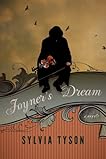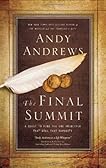 Mushishi, Vols. 8/9/10
Mushishi, Vols. 8/9/10 by
Yuki UrushibaraMy rating:
4 of 5 stars Volume 8
THE MILK OF THE VALLEY
Ginko is rescued by a man under the influence of mushi. The man works day and night without rest. The parents of the man had found a pond of milk when they were poor and without nothing to drink.
The mushi who transforms the blood in milk is called Chisio: it “forces the host in sleepless work gathering nourishment for it. And Chisio builds its own strenght.” (page 43)
The man: “My body … is what it became by drinking my mother’s blood.” (page 42)
THE BOTTOM OF WINTER
“On the mountain in late winter …
when are heard …
low-pitched, tiny, murmuring sounds …
quickly and all at once …
the mushi of spring awaken.” (page 49)
This time the mushi is called Oroshibue: “the whistling sound of a cold mountain wind in winter.” (page 218) Oroshibue helps the mountains with the winter’s migration.
Ginko notices that “the mountain is … closed off.” (page 60), it seems that the mountain is going to die. “The winter mushi can’t migrate?” (page 61)
But Ginko found that the Koki are healing from their wounds inside the bog, so the mountain wasn’t going to die.
Koki is nutrition for Oroshibue, so it steals from Ginko his Koki
and eventually “Winter fails. The mountain laugh. The fields are dressed in rich green.
THE HIDDEN CHANNEL
The title refers to those water channels that are hidden by the trees and greenery.
A girl and her friend are bound each other: they know their thoughts without talking.
Ginko: “There is a deep channel between you and that person.” (page 94)
“They say there are paths that nobody can see … (paths) between the minds of people.” (page 95)
“What causes this … are mushi that are working at our command. Kairogi (waterways) … that’s what they’re called.” (page 96)
SUNSHOWERS
A girl forecast the coming of the rain.
The girl: “I only came to foretell the coming of the rain. Do you think any human has the power to make it rain?” (page 143)
A mushi called Amefurashi: “ Normally they float in the sky. … But … as sunny days continue and the air begins to lose its moisture … they come close to the earth … and take the form of runaway water.” (page 169)
Ginko tells to the girl that the mushi Amefurashi is inside her: “stealing the moisture away from your body. They rise into the sky and gather the rain above you.” (page 170)
The girl: “Then I’ll find a spot on Earth … and plant some roots. … I’ll walk with the rain … and like the clouds … I’ll drift along.” (page 175)
THE MUD WEEDS
A brother kills his own brother, but mushi …
“They’re mushi that take the corpses of animals and breaks them down until they’re the consistency of mud.
When a living thing steps into the mud, it spreads the spores around.” (page 182)
Volume 9
THE FINAL BIT OF CRIMSON
A child takes the body of another child, when she is old remembers of the other child and wants to go ‘home’.
“Just about dusk … especially when there’s a sunset like today’s … She says ‘going home’ … and she tries to leave the house.” (page 10)
“Something gets sucked out of the world at sunset … and something else appears. There’s a creature called Omagadoki.
The people who get sucked in by it … see the form of a shadow with non one to cast it.
And if that shadow is stepped on or somehow comes underfoot … they are bodily sucked in by the Omagadoki, and are exchanged for someone else.” (page 26)
THE WHIRLWIND
Ginko is traveling on a ship when he hears a boy whistling: the boy is calling Torikaze to make wind and move the ship.
Torikaze means bird wind.
Ginko already knows this mushi called Torikaze, so he tells to the boy not to whistle a night.
Inadvertently the boy whistle during the night, so doing he recalls another mushi called Yobiko.
Yobiko: “They build nests by making holes in the rocks on the sea-shore. The wind blows through the holes making a whistling sound, and they gather at the sound.” (page 72)
Yobiko first causes the sinking of the ship; and after, at home, the boy is followed by Yobiko that makes holes everywhere.
Ginko intervenes and acts as the Pied Piper of Hamelin.
STARS IN THE JAR OF THE SKY
A child could be kidnapped, so her parents ask for help to Ginko. Ginko thinks that the child, although invisible, is living in the house.
The child, attracted by the stars sparkling in the well, has fell into it. “... crystal clear water … where an infinite number … of stars live.” (page 134)
“the source of life called the light flow … hits the well … and sparks are created.” (page 136)
The child falling in the wall has gone to the other side of the sky and can not come back.
ACQUAMARINE
A mushi called Uko lives in the body of a child. He has webbing on his hands.
Uko “infect the corpses of people who have drowned in the water. … they can revive the person.” (page 148)
“... the sea, the river … the rain and the clouds … are all the same?” (page 185)
The story tells about the liaison between mother and his child. An ancestral element, the water, explains the origin of life and the connections between living being.
The mother: “You’re here. I can find you everywhere.” (page 186)
THE BED OF GRASS
This story tells about Ginko as a boy.
“The master is the personification of the ‘nature’ of things.” (page 204)
Ginko can not become the master of nature, he can just live inside the nature.
“The entire world as a whole … is your home.” (page 204): Ginko is immersed in a bed of grass.
Volume 10
THE THREAD OF LIGHT
Ginko had saved a baby wrapping him with a special clothes. Because of that, the baby grew up strong and incapable to control himself. The clothes is made of a special thread: only mothers can see this special thread. It shows the bond between mothers and sons.
“That thread is what we mushishi call Yoshitsu.” (page 36) Yoshitsu means fairy-stuff.
The mother inadvertently picks up Yoshitsu from the baby, but suddenly the baby looses vitality. The father of the baby prefers to separate the baby from his mother.
So Ginko has to save the boy draining Yoshitsu from him, but the medicine doesn’t work.
The last chance is the mother of the boy: only the mother can see the thread, and free the boy from Yoshitsu.
THE ETERNAL TREE
A man ate a seed that looked like a plum. But it was a mushi called Satorigi (means: understanding tree). When the man finds a Japanese cedar cut down, he walks on the tree’s roots and seems his feet turned into the wood.
Satorigi shelters inside trees, when it senses the tree is in danger, Satorigi gives off a flower and after a fruit. Inside that fruit is stored all of the tree’s memory.
“... a tree stood on this land. And spread its branches high and wide. And without change, it quietly watched over … the ever changing creatures that were born and died beneath it.” (page 97)
THE SCENTED DARKNESS
“Night. Suddenly you’re hit by the smell of flowers … and it brings back the thread of a memory.” (page 99)
A man is victim of a Kairo, it’s a mushi “that puts out a smell like flowers to lure in bugs … it takes the creatures, it traps and put them into a strange loop of time.” (page 131)
The man repeats infinitely his life’s story.
The story suggests the idea of life as circle, or just acceptance of the temporary (Wabi).
DROPS OF BELLS
Ginko meets a girl who he thinks is a master of nature.
After some time Ginko meets a man: he is the girl’s brother. The man explains to Ginko: she “... had grass growing from her head from the day she was born.” (page 166)
In the mountains there are ‘fertile places’ called ‘light flow’. (page 175)
“in such places, the mountains need a ‘master’ to take care of things. … Those who have been chosen to be masters … are born with … grasses growing out of their bodies.” (page 175)
Ginko: “Now … I’d better be on my way.” (last page - ‘Curtain closes’)
View all my reviews
 Joyner's Dream by Sylvia Tyson
Joyner's Dream by Sylvia Tyson

